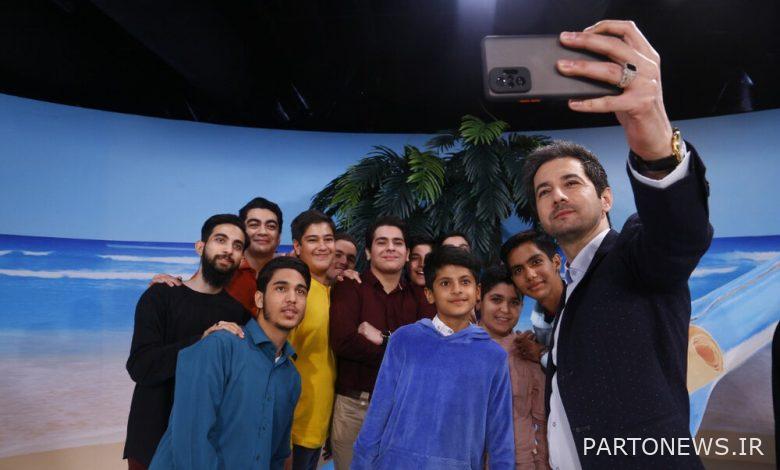“Pacific Ocean” and the challenges of teenage work/ celebrities are not the goal – Mehr News Agency | Iran and world’s news

Hadi Nematolahi, who produced and directed two seasons of the “Pacific Ocean” program, likened this program to a school and workshop and told Mehr reporter: “Pacific Ocean” is more of a school and workshop than a television series. And it came out of an educational concern and our effort was to create a healthy environment for teenagers so that children can learn and gain experience in this environment.
Choosing a guest is a serious challenge for the production team
The producer added about the “Pacific” think tank: “There were a lot of people involved who were concerned about teenagers. Some more and some may have been with us for one session. We tried to get help from those who have worked in the field of teenagers or who have a problem to step in these spaces. The variety of people in the think tank is very large, that’s why I won’t mention names. Some of them have been with us in the field of form and planning, and most of them have been with us from an educational point of view.
Nematolahi explained about the selection of guests: the fact is that we have had variety in the guests, and the reason is that we have always approached the guests of the program with a specific theme. It means that we have had a list of important concerns of teenagers and we have tried to find people who fit into this format. We may have 3 presenters and 4 actors among the guests, but it is a serious challenge to bring an actor to say a certain word. We don’t necessarily want to bring a successful person, but it should be someone who can convey to the teenagers the theme that we have reached in the pre-production and think room meetings.
The producer of “Pacific Ocean” further added: It is not an easy task to have a variety of people, including entrepreneurs, actors, lawyers, psychologists, painters, athletes, pilots, etc. To bring together people with unique characteristics from different fields because the issues of teenagers are so diverse and floating between different fields. The guests of the program came with this logic.
Nemat Elahi clarified about the themes conveyed by the guests: We tried to emphasize a keyword with each guest. One is respect for parents, the other is responsibility, dialogue effectiveaccepting the situation, understanding people, fighting, trying to find the path, finding the right teacher and… each of these and other keywords are the highlights of our conversations with each of the guests of the program.
Bringing famous faces to the program is not our concern
The director of the program said about the diversity of teenagers’ encounters with the program’s guests: Our children generally have a notebook with them and they write down each of their impressions from each of the program’s guests in that notebook. This is not something we have told them and it happens in the normal process of the program. We are trying to bring a famous person, it is not necessarily our concern to bring a famous person or a face. Someone who is known in the field he works in, has a serious voice and can support a lived experience.

This TV program maker explained about the special story of some guests: we don’t know some of them in advance and some of them we have gone to that special person knowing their background. For example, we approached Najmuddin Shariati as a person who has traveled a path and had a special concern. But in the middle of the work, we came to another personal characteristic that strengthened our discussion, and that was the discussion of his stuttering, which was mentioned in the full program. In the meantime, there has been a struggle for this person, and if not, the principle of this person’s performance would be questioned. This issue can have many biological and experimental lessons for teenagers.
He further stated: But there have been stories about some guests from the beginning, such as Sajjad Salarond, who is disabled in both legs and is a mountain climbing and athletics champion, and this disability is not obvious in his appearance. We designed this part of the program with his help completely based on the story we knew from him.
Nemat Elahi further commented on the feedback of this program: Television is not doing very well these days and one should expect as much from him as he is. But “Pacific” is a bit different, it’s not an entertainment show but we see that adults have connected with it too. After seeing the program, they have paused and recommended it to their children. We also have serious feedback from the adult audience.
In the end, the producer of “Pacific Ocean” emphasized about programming for teenagers: “Pacific Ocean” is a program that has a serious audience and is followed. This issue can be observed from the feedbacks that we receive or that we see in the virtual space. The audience’s acceptance of “Pacific Ocean” has another meaning, and that is that we have not done any other serious work in this field, and this helps the work to be seen and, of course, makes our responsibility heavier.
In the end, he expressed his hope that programming for this generation will become a serious path in the organization and said: so that if people like me have a pause of two or three years between the production of two seasons of the program, they will feel that they have a field. they lose

